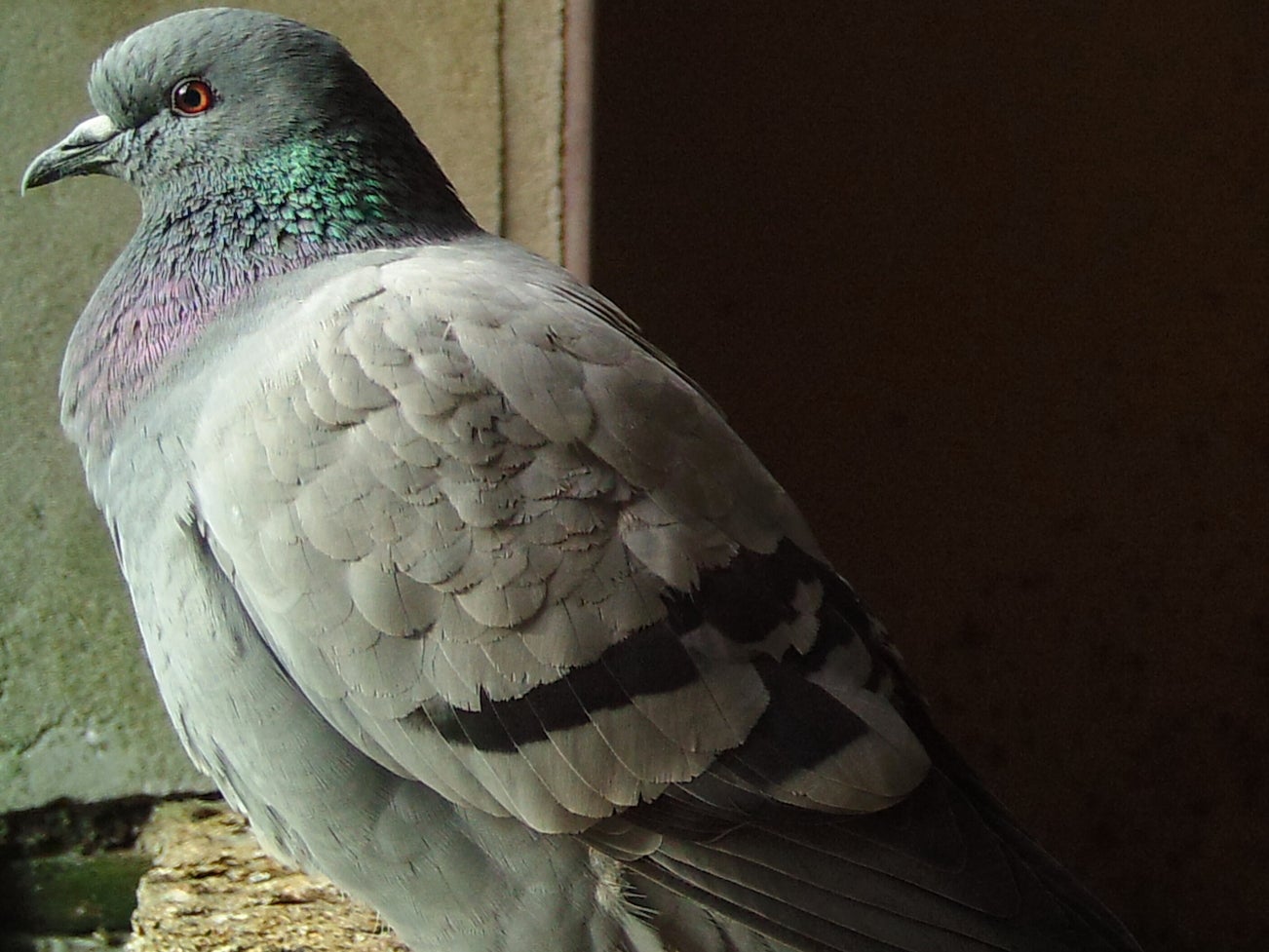Rare wild ancestors of modern pigeons found living on remote islands
Small colonies of rock doves discovered off Scottish and Irish coasts

Tiny populations of the birds which are the ancestors of common domestic and feral pigeons have been found living on remote Scottish and Irish islands – places which pigeons have not been able to colonise.
The species is already extinct in England and Wales, mainly due to interbreeding with feral pigeons but a research team from Oxford University discovered small populations of the seldom-seen rock dove, Columba livia, including on the outer Hebrides and Cape Clear Island off the south-west coast of County Cork in Ireland.
So-called "feral" pigeons originate from escaped domestic birds – first caught by humans to be reared for eating – and can be seen in towns and cities all over the world. These domestic pigeons are descended from wild rock doves, whicho nest in sea caves and mountainous areas.
Despite the enormous success of feral pigeons, the rock dove has been declining throughout its global range – which once encompassed vast areas of Africa, Asia and Europe.
Lead author of the research, Will Smith, said: "Studying the decline of the rock dove has been challenging for researchers because of such extensive interbreeding and replacement with feral pigeons."
The species only persists in small populations – remnants of larger colonies – where feral pigeons have not yet been able to colonise.
The research team said that due to the interbreeding of feral pigeons and rock doves, and their resulting hybrids, many ornithologists believe that there are no truly wild rock doves left.
However, the research team knew of potential colonies in Europe, the Faroe Islands, parts of the Mediterranean and parts of Scotland and Ireland.
The researchers analysed the birds’ DNA to determine whether they were truly "wild", and to estimate how much genetic influence from feral pigeons different wild populations had experienced.
Through a combination of expeditions and collaboration with British Trust for Ornithology bird ringers, researchers caught both feral pigeons and what they estimated to be rock doves in places including North Uist in the Outer Hebrides, Orkney, and Cape Clear Island.
The team carried out DNA sequencing from feather samples and were able to show the differences between feral pigeons and rock doves, and also measure the degree of interbreeding between the species.
The results confirmed that the rock doves of the UK and Ireland descended from the undomesticated lineage from which all feral and domestic pigeons originate, with varying degrees of interbreeding.
Rock doves in Orkney have experienced extensive interbreeding with feral pigeons and are at risk of getting hybridised to the point of their extinction as a distinct lineage, the researchers said.
In contrast, rock doves in the Outer Hebrides remain almost free of feral pigeon influence.
"We identified feral pigeon ancestry in most of the Scottish and Irish rock dove populations we sampled, and there have been feral pigeons in Europe for hundreds of years," said Mr Smith.
"It was therefore really surprising to discover that the Outer Hebridean rock doves showed negligible signs of hybridisation."
However, the team noted that feral pigeons have been reported on these islands with increasing frequency, so it might be that the distribution of wild rock doves in the UK continues to shrink as a result.
They said that better recording of the birds’ distribution and genetic status will help to monitor the remaining rock dove populations, and encourage efforts to understand potential populations elsewhere.
In the wider context of conservation, increasing understanding of "extinction by hybridisation" will help efforts to prevent many other plants and animals, such as the Scottish wildcat – which has interbred with domestic cats – from undergoing the same fate as the rock dove.
The research is published in the journal iScience.






Join our commenting forum
Join thought-provoking conversations, follow other Independent readers and see their replies
0Comments